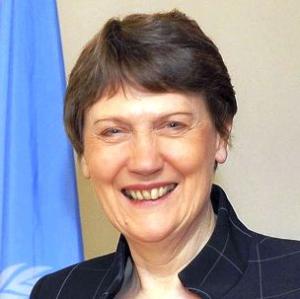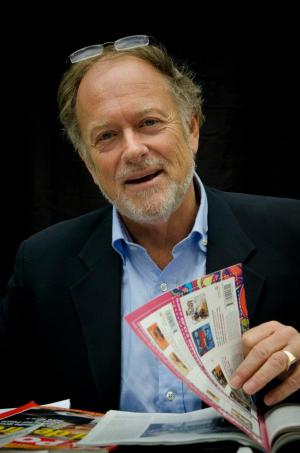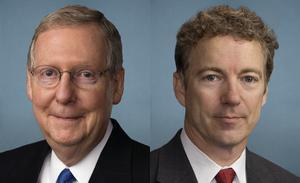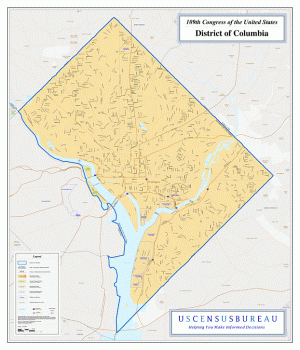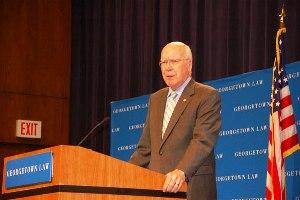|
|
|
|
UN Development Program Head and Former NZ Prime Minister Slams Drug Warby Phillip Smith, March 16, 2013
It is increasingly clear that the "war on drugs" has failed and there needs to be room for new approaches, the head of the United Nations Development Program (UNDP) said Thursday. UNDP head Helen Clark's remarks ahead of the presentation of the organization's 2013 Human Development Report came in a pre-ceremony interview with Reuters. Clark is no small-time functionary. From 1999 to 2008 she served as the prime minister of New Zealand -- three terms, according to Wikipedia -- and before that headed the nation's health ministry, among others. As UNDP chief she is the UN's third highest-ranking official. |
Is the International Narcotics Control Board Ignoring Human Rights?by David Borden, March 14, 2013
A recent report by the UN special rapporteur on torture charged that compulsory drug treatment centers in some countries, particularly Vietnam and Thailand, constitute "forced labor" camps that engage in "torture." Long-time addiction writer Maia Szalavitz wrote about this in Time last week, and Phil did in our newsletter last Monday. The report is online here. The issue is not a new one, having been raised by Human Rights Watch in September 2011. HRW detailed forced labor, worker pay getting taken by the centers or staffs, inmates getting beaten, even bones broken, if they didn't comply with instructions. Nevertheless, in its 2011 annual report, published five months after HRW's, the International Narcotics Control Board had only this to say in relation to Vietnam's treatment centers: In September 2010, the Government of Viet Nam issued a decree on the strengthening of family-based and community-based drug treatment and rehabilitation services. In March 2011, the Ministry of Public Security of Viet Nam adopted measures to improve the collection and analysis of drug-related data. In June 2011, the Government of Viet Nam adopted the national strategy on drug control and prevention for the period ending in 2020. Based on that strategic document, the national target programme for the period 2011-2015 was developed to address drug-related issues in the country. and The Board welcomes the steps taken in Viet Nam to improve the treatment and rehabilitation of drug abusers and the efforts made in participating in different projects sponsored by [the UN Office on Drugs and Crime, UNODC] in that area. The Board encourages the Government to reinforce and support existing facilities as well as to undertake capacity-building in the field of treatment for drug abusers. The 2012 INCB report, released last week -- more than a month after the special rapporteur's report was released -- offers just this: The Government of Viet Nam launched its new national drug control and crime prevention strategies in July 2012. The strategies highlight the need for a comprehensive national response that combines effective law enforcement, drug abuse treatment and rehabilitation measures that allow for better integration of former drug dependent persons into society and the active participation of communities in crime prevention. I understand that any system involving confinement has the potential for abuse, in the best of times and places, and that any one report on a subject can miss the mark. But we have allegations from a respected organization, and now from the UN itself, of systemic abuses, of a degree of seriousness that would seem to invalidate the entire project. Presumably international funding is in the mix at well. So why not even a word about it, from the self-described "quasi-judicial body" overseeing the international drug control regime? Open Society Foundation's Joanne Csete noted comments by the late Hamid Ghodse, then INCB chairman, at the Commission on Narcotic Drugs last year, disclaiming any role for human rights concerns in the drug treaties or his agency. But that is not the stated position of the other main UN drug agency, UNODC. So do we have a scandal in the making -- or better yet, an opportunity to reform the international drug control regime? [By the way, Csete's afore-linked essay is part of the LSE IDEAS report included in our current membership offers.]
|
UN Report Slams Cruel Drug Treatment as "Torture"by Phillip Smith, March 11, 2013
Compulsory "treatment" for drug addiction in some parts of the world is "tantamount to torture or cruel, inhuman or degrading treatment," according to report last month from the UN's special rapporteur on torture and other degrading treatments and punishments. The report was delivered to the Office of the UN High Commissioner for Human Rights in Vienna.
Authored by Special Rapporteur Juan Mendez, the report takes special aim at forced "rehabilitation centers" for drug users. Such centers are typically found in Southeast Asian states, such as Vietnam and Thailand, as well as in some countries in the former Soviet Union. But the report also decries the lack of opiate substitution therapies in confinement setting and bemoans the lack of access to effective opioid pain treatment in large swathes of the world.
"Compulsory detention for drug users is common in so-called rehabilitation centers," Mendez wrote. "Sometimes referred to as drug treatment centers or 'reeducation through labor' centers or camps, these are institutions commonly run by military or paramilitary, police or security forces, or private companies. Persons who use, or are suspected of using, drugs and who do not voluntarily opt for drug treatment and rehabilitation are confined in such centers and compelled to undergo diverse interventions." The victims of such interventions face not only drug withdrawal without medical assistance, but also "state-sanctioned beatings, caning or whipping, forced labor, sexual abuse, and intentional humiliation," as well as "flogging therapy," "bread and water therapy," and forced electroshock treatments, all in the name of rehabilitation. As Mendez notes, both the World Health Organization (WHO) and the UN Office on Drug Control (UNODC) have determined that "neither detention nor forced labor have been recognized by science as treatment for drug use disorders." Such forced detentions, often with no legal or medical evaluation or recourse, thus "violate international human rights law and are illegitimate substitutes for evidence-based measures, such as substitution therapy, psychological interventions and other forms of treatment given with full, informed consent." Such centers continue to operate despite calls to close them from organizations including the WHO, the UNODC, and the UN Commission on Narcotic Drugs. And they are often operating with "direct or indirect support and assistance from international donors without adequate human rights oversight." Drug users are "a highly stigmatized and criminalized population" who suffer numerous abuses, including denial of treatment for HIV, deprivation of child custody, and inclusion in drug registries where their civil rights are curtailed. One form of ill-treatment and "possibly torture of drug users" is the denial of opiate substitute therapy, "including as a way of eliciting criminal confessions through inducing painful withdrawal symptoms." The denial of such treatments in jails and prisons is "a violation of the right to be free from torture and ill-treatment," Mendez noted, and should be considered a violation in non-custodial settings as well. "By denying effective drug treatment, state drug policies intentionally subject a large group of people to severe physical pain, suffering and humiliation, effectively punishing them for using drugs and trying to coerce them into abstinence, in complete disregard of the chronic nature of dependency and of the scientific evidence pointing to the ineffectiveness of punitive measures." The rapporteur also noted with chagrin that 5.5 billion people, or 83% of the planet's population, live in areas "with low or no access to controlled medicines and have no access to treatment for moderate to severe pain." While most of Mendez' concern is directed at the developing world, he also notes that "in the United States, over a third of patients are not adequately treated for pain." Mendez identified obstacles to the availability of opioid pain medications as "overly restrictive drug control regulations," as well as misinterpretation of those regulations, deficiencies in supply management, lack of concern about palliative care, and "ingrained prejudices" about using such medications.
New York City, NY
United States
|
Britain to Study Other Countries' Drug Reformsby Phillip Smith, March 07, 2013
British Home Secretary Theresa May has ordered a "what works" study of drug reforms in other countries, but has rejected a call from the House of Commons for a quick-acting royal commission on reform. The Commons home affairs select committee had called for a royal commission to report by 2015 on how to change the country's 40-year-old Misuse of Drugs Act. While not going as far as MPs might have liked, the move suggests that the Tory government of Prime Minister David Cameron feels the ground shifting beneath it on drug policy, in part because its junior partners in the governing coalition, the Liberal Democrats, advocate for a much more radical approach.
London
United Kingdom |
US, International Drug Warriors Attack State Marijuana Legalization [FEATURE]by Phillip Smith, March 05, 2013
As the nation awaits the Obama administration's response to marijuana legalization votes in Colorado and Washington, Tuesday saw a two-pronged attack on the whole notion. On the one hand, former drug czars and Drug Enforcement Administration (DEA) heads lined up to urge the administration to act now to strangle legalization in its crib, while on the other, the International Narcotics Control Board (INCB) warned that allowing states to legalize would violate international drug control treaties. Legalization supporters rejected the attacks, comparing the ex-DEA chiefs to Prohibition agents seeking to justify their efforts and dismissing the global anti-drug bureaucrats as largely irrelevant.
|
More Overreaching Arguments Against Marijuana Legalization by DEA Chiefs and the UNBy David Borden, March 05, 2013
The International Narcotics Control Board, a UN agency, and eight former DEA administrators came out swinging this week against marijuana legalization in Colorado and Washington. The INCB says the state laws violate UN treaties. The DEA chiefs want the Obama administration to sue to block the laws. Both of those positions may be overreaches. It's true that federal marijuana legalization would require revision of the drug treaties, if the US is not to be in violation of them (or for the US to do what Bolivia did by withdrawing and then rejoining "with reservations"). Legalization by Congress even just within states that have enacted it is also a likely treaty issue. But Colorado and Washington aren't parties to the treaties, and federal law remains in force within those states. The states have simply ceased to contribute their own resources to a part of the prohibition program. Under our federal system they very probably have the legal right to do so. And that is why the DEA chiefs have overreached as well. When one says that federal law is supreme in this area, it means that federal agents can use the powers they have to bring criminal or civil actions against marijuana users or sellers, despite the passage of state laws -- the Raich case decided that for medical marijuana, for reasons that would seem to apply to fully legalized marijuana too. But that doesn't mean the states have to help them. We have a federal system. As I've pointed out previously, no federal prosecutor in 16 years of state medical marijuana laws has ever argued in court that the states can't have those laws on their books. Clearly they've had incentive to do so, if they thought they could win that way. I don't argue that we know for sure how these points will come out if they are adjudicated -- it is new legal territory. But most legal scholars seem to think a preemption ruling would be a long shot outcome. So that is how it looks to me. [If you haven't already, please order the two recent reports, from the Cato Institute and the London School of Economics, addressing these two very issues -- available in harcopy on our web site for a small donation.] |
Norway Government Wants to Decriminalize Heroin Smokingby Phillip Smith, March 01, 2013
The Norwegian government said Friday it wants to decriminalize the smoking of heroin as a harm reduction measure, Agence-France Presse reported. Smoking heroin is less dangerous than injecting it, and the move could reduce the number of overdoses, officials said.
"The number of fatal overdoses is too high and I would say it's shameful for Norway," said Health Minister Jonas Gahr Stoere. "The way addicts consume their drugs is central to the question of overdoses. My view is that we should allow people to smoke heroin since injecting it is more dangerous," he said.
According to the Norwegian Institute for Alcohol and Drug Research (SIRUS), heroin overdoses accounted for 30% of 262 fatal overdoses in 2011. By comparison, only 168 people died in traffic accidents that year. The city of Oslo has opened a supervised injection site in a bid to reduce overdoses, but decriminalizing heroin smoking would also help, said Stoere. Users currently can't smoke at the supervised injection site. "This isn't about some kind of legalization of heroin but about being realistic," he said. "Those who are in the unfortunate situation of injecting themselves in a drug room should be able to inhale. It is less dangerous, you consume less and the risk of contracting a disease is lower," he added. "It's a paradox that you can't smoke heroin when you can inject it, since the first method is less dangerous than the second," SIRUS researcher Astrid Skretting told AFP. "But the culture of injecting which provides a more immediate effect than smoking seems deeply rooted in Norway and it's not certain that a decriminalization will lead to a radical change in behavior," she suggested. The Norwegian government is set to unveil its latest plan for fighting drug addiction next week. Stoere said the heroin smoking decrim plan has the backing of the center-left government.
Oslo
Norway
|
HCLU Interview with Former EU Drugs Commissioner Carel Edwardsby David Borden, February 26, 2013
Our friends at the Hungarian Civil Liberties Union have a fascinating interview with former EU drugs commissioner Carel Edwards online. He explains that the EU -- an overarching body whose powers are limited relative to its individual member countries -- has only "soft power" on drug policy (or "drugs" policy as they call it there), but he feels they've used it effectively, in ways that point away from the criminalization model. Two quotes stood out for me: "[D]ecriminalizing possession is not in the EU strategy, but if you take the EU strategy as a whole, the clear conclusion is that all-out prohibition is ineffective, expensive and not supported by any evidence base."The EU can't enact decriminalization itself, but through the thrust of its strategy they provide political ammunition to policymakers who would like to move their national policies in that direction -- in countries that are EU members as well as countries applying for EU membership. This is what he had to say about the United States on drug policy: "With the US, we tend to disagree on a lot of things -- we've had the US against us in Vienna [where the UN drug agency is headquartered] for quite a few years. The US is allergic to a lot of the European evidence-based approach and appears to be far more interested in supply reduction then in harm reduction. And it's not very fussy about human rights." Relatedly, there are some very enlightening articles on both of those topics in a recent London School of Economics IDEAS special report, Governing the Global Drug Wars. (This is one of the two reports whose hardcopies we're providing as part of our latest membership offer.) Another big of StoptheDrugWar.org promotion: check out speeches by (now former) Member of the European Parliament at our 2003 conference in Mexico, "Out from the Shadows: Ending Drug Prohibition in the 21st Century." |
Brits Want Marijuana Reforms, Drug Policy Reviewby Phillip Smith, February 19, 2013, 05:17pm, (Issue #772)
According to a new Ipsos Mori poll, a majority of Britons favor either decriminalizing or legalizing marijuana and two-thirds support a comprehensive review of all the options for controlling drugs, from legalization to tougher enforcement. Only 35% favored the status quo (21%) or harsher treatment of marijuana (14%). Eight percent had no opinion and 4% said "I have never heard of this drug." Britain down-scheduled marijuana from a Class B to a Class C drug in 2004, but reversed course in 2008, placing it back on the more serious Class B amid rising fears of the dangers of "skunk" marijuana, Britain's generic term for high-potency, domestically-produced weed. When it comes to other drugs, a majority (60%) favored the status quo, while only slightly more than one-third (36%) favored either decriminalization (14%) or a pilot decriminalization program (21%). But more than two-thirds of respondents (67%) wanted a comprehensive independent review of Britain's drug policies. Support cut across party lines, with 69% of Labor supporters and 70% of Conservative supporters calling for a review of drug policy. Britain's Conservative-led government has shown distinct disinterest in revisiting the country's drug policies, although that has led to some friction with its Liberal Democrat junior partners. "These results just show how far ahead of politicians the public are," said the Transform Drug Policy Foundation, which commissioned the poll. "Whilst Labor and Conservative politicians shy away from the debate on drugs, around half of their supporters want to see legal regulation of cannabis production and supply or decriminalization of cannabis possession, and a significant majority want a comprehensive review of our approach to drugs -- including consideration of legal regulation," the group said. "Politicians have repeated their 'tough on drugs' propaganda for so long that they assume the public are more fearful of change than they really are," Transform said. "In fact the world has changed, and the public are far more progressive than was thought, right across the political spectrum. At the very least the government should heed long standing and growing calls for a review of all policy options, including legal regulation. And as a matter of urgency the coalition should engage in experiments in the Portuguese style decriminalization of possession of drugs for personal use. Now is the time for the heads of all parties to show the leadership citizens surely deserve." |
Brits Want Marijuana Reforms, Drug Policy Reviewby Phillip Smith, February 19, 2013, 05:17pm, (Issue #772)
According to a new Ipsos Mori poll, a majority of Britons favor either decriminalizing or legalizing marijuana and two-thirds support a comprehensive review of all the options for controlling drugs, from legalization to tougher enforcement. Only 35% favored the status quo (21%) or harsher treatment of marijuana (14%). Eight percent had no opinion and 4% said "I have never heard of this drug." Britain down-scheduled marijuana from a Class B to a Class C drug in 2004, but reversed course in 2008, placing it back on the more serious Class B amid rising fears of the dangers of "skunk" marijuana, Britain's generic term for high-potency, domestically-produced weed. When it comes to other drugs, a majority (60%) favored the status quo, while only slightly more than one-third (36%) favored either decriminalization (14%) or a pilot decriminalization program (21%). But more than two-thirds of respondents (67%) wanted a comprehensive independent review of Britain's drug policies. Support cut across party lines, with 69% of Labor supporters and 70% of Conservative supporters calling for a review of drug policy. Britain's Conservative-led government has shown distinct disinterest in revisiting the country's drug policies, although that has led to some friction with its Liberal Democrat junior partners. "These results just show how far ahead of politicians the public are," said the Transform Drug Policy Foundation, which commissioned the poll. "Whilst Labor and Conservative politicians shy away from the debate on drugs, around half of their supporters want to see legal regulation of cannabis production and supply or decriminalization of cannabis possession, and a significant majority want a comprehensive review of our approach to drugs -- including consideration of legal regulation," the group said. "Politicians have repeated their 'tough on drugs' propaganda for so long that they assume the public are more fearful of change than they really are," Transform said. "In fact the world has changed, and the public are far more progressive than was thought, right across the political spectrum. At the very least the government should heed long standing and growing calls for a review of all policy options, including legal regulation. And as a matter of urgency the coalition should engage in experiments in the Portuguese style decriminalization of possession of drugs for personal use. Now is the time for the heads of all parties to show the leadership citizens surely deserve." |
Bipartisan Hemp, Medical Marijuana Bills Introduced in Congress [FEATURE]by Phillip Smith, February 19, 2013, 10:50am, (Issue #772)
It's a marijuana policy trifecta on Capitol Hill now: recreational marijuana, medical marijuana, and hemp. Earlier this month, reformist House members filed bills to end federal pot prohibition and tax the trade and last week to legalize hemp. Now, some of those same legislators -- joined by more -- have filed bills that would protect medical marijuana patients and providers and some senators have filed their companion bill to legalize industrial hemp. Phase II took place Thursday, when Rep. Earl Blumenauer (D-OR), sponsor of the above-mentioned marijuana tax bill, rolled out House Resolution 689, the States' Medical Marijuana Protection Act; Rep. Sam Farr (D-CA) introduced House Resolution 710, the Truth in Trials Act; and Sen. Ron Wyden (D-OR) and three co-sponsors filed the Industrial Hemp Farming Act of 2013, the companion to House Resolution 525.
Washington, DC
United States
|
Iran Drug Execution Frenzy Continues This Yearby Phillip Smith, February 11, 2013, 01:50am, (Issue #771)
Last Wednesday, three men convicted of drug related charges were hanged in the prison in the Iranian city of Isfahan, state media reported. The prisoners died unnamed; only the charges and the fact of their execution were mentioned.
That's par for the course for the Islamic Republic, which in recent years has emerged as one of the world's most prolific executioners of drug offenders. Hundreds were sent to the gallows for drug offenses last year (a final tally isn't in yet) and nearly 500 the year before that, according to Iranian human rights sources and state media reports compiled by the anti-death penalty group Hands Off Cain. 21 more were executed in January alone, bringing the total so far this year to 24.
It's a grim litany:
The practice of imposing the death penalty for drug offenses is frowned upon by the United Nations, a stance embraced by the UN Office on Drugs and Crime.
Iran
|
Federal Marijuana Reform Bills Introduced [FEATURE]by Phillip Smith, February 05, 2013, 10:54pm, (Issue #770)
Two Democratic congressmen announced Tuesday that they are introducing legislation to reform federal marijuana policy. In a joint press conference that also included representatives of drug reform groups, Reps. Earl Blumenauer (D-OR) and Jared Polis (D-CO) announced two separate bills aimed at addressing the looming clash between intransigent federal marijuana policies and states that have or likely will legalize marijuana. And more bills are pending, they said.
Blumenauer and Polis also released a report entitled "The Path Forward: Rethinking Federal Marijuana Policy," which outlines their perspective on marijuana policy and provides some background on regulation and opportunities for action. The congressmen have also established the Sensible Drug Policy Working Group, which will provide a forum for members of Congress who are working on related issues and hope to advance legislation.
Polis's Ending Federal Marijuana Prohibition Act would remove the DEA's authority over marijuana, end federal marijuana prohibition, and leave it to the states to decide whether to prohibit marijuana or not. Blumenauer's Marijuana Tax Equity Act, House Bill 501, would create a federal excise tax on marijuana similar to those imposed on alcohol and tobacco. Taken together, the two bills would provide for a system of marijuana regulation and taxation in states where it is legal. More specifically, Polis's bill would:
Blumenauer's bill would:
The time has come for marijuana law reform at the federal level, the two congressmen said.
Washington, DC
United States
|
Mitch McConnell Endorses Kentucky Hemp Billby Phillip Smith, January 31, 2013, 11:14pm, (Issue #770)
In a statement last Thursday, Senator Mitch McConnell (R-KY), the minority leader in the US Senate, endorsed pending legislation in his home state that seeks to reintroduce industrial hemp cultivation there. The bill already has the support of the state's other US senator, Rand Paul, and Agricultural Commissioner James Comer, who were instrumental in bringing McConnell on board.
"After long discussions with Senator Rand Paul and Commissioner James Comer on the economic benefits of industrialized hemp, I am convinced that allowing its production will be a positive development for Kentucky's farm families and economy," McConnell said. "The utilization of hemp to produce everything from clothing to paper is real, and if there is a capacity to center a new domestic industry in Kentucky that will create jobs in these difficult economic times, that sounds like a good thing to me."
But McConnell first had to be reassured that industrial hemp wouldn't somehow turn into recreational marijuana. Comer apparently managed the trick. "Commissioner Comer has assured me that his office is committed to pursuing industrialized hemp production in a way that does not compromise Kentucky law enforcement's marijuana eradication efforts or in any way promote illegal drug use," McConnell said. In a statement of his own last Thursday, Comer expressed enormous gratitude for McConnell's support. "When the most powerful Republican in the country calls to discuss your issue, that's a good day on the job," Comer said. "Leader McConnell's support adds immeasurable strength to our efforts to bring good jobs to Kentucky." The hemp bill, Senate Bill 50, sponsored by Sen. Paul Hornback (R-Shelbyville), would direct the state Agriculture Department to create a program for licensing industrial hemp producers, but would not go into effect until there is a change in federal law, which bans the production -- but not the importation -- of industrial hemp. In addition to both US senators, the bill has also garnered the support of two of the state's six US representatives, US Reps. John Yarmuth (D) and Thomas Massie (R). The two congressmen, Sen. Paul, and Commissioner Comer will all testify in favor of the bill. "Our federal delegation is showing tremendous leadership," Comer said. "They recognize this is not a partisan issue. It's about jobs. And we will continue to push forward to make sure Kentucky is first in line for them." State legislative leaders are also firmly backing the bill. Senate Majority Leader Damon Thayer (R-Georgetown) joined Sen. Hornback in convincing the Northern Kentucky Chamber of Commerce to endorse the bill. It did so Wednesday. The bill gets a hearing in the Senate Agriculture Committee on February 11.
Frankfort, KY
United States
|
Colombia Set to Decriminalize Ecstasy, Methby Phillip Smith, January 31, 2013, 05:29pm, (Issue #770)
Colombian Minister for Justice and Law Ruth Stella Correa said last Wednesday that the government will propose decriminalizing the possession of small amounts of synthetic drugs, such as ecstasy and methamphetamine, according to local press accounts. She added that a drug policy advisory commission would revise the country's drug law and present the proposal to congress.
Correa's remarks came as she announced the formation of the advisory commission.
Currently in Colombia, people are not prosecuted for the possession of small amounts of marijuana and cocaine. She said the proposal would extend that protection to users of synthetic drugs like methamphetamine and ecstasy. "The proposal aims to standardize the amount of drugs already permitted, while also allowing an equivalent quantity of synthetic drugs," she said. "We have to accept that Colombia is a consumer country -- this is also our reality -- and being a consumer country, we can't just throw drug users in jail, but we must look after them. I don't see the risk in establishing a personal use amount of synthetic drugs, since we are only trying to clarify things to achieve treatment for addicts and users, not to send them to prison." Colombian constitutional court rulings have established a right to possess personal use amounts of drugs, but the government has not established what those personal use amounts of synthetic drugs are. The advisory commission will do that. The government of President Santos has also embarked on a more than rhetorical shift toward a public health approach to drug use, and Correa emphasized that in her remarks. "We are convinced that drug policy should be designed with a holistic approach, involving families, the education system, the public health specialists, development practitioners and community leaders," she said. Not everyone agrees with the move. Former President Alvaro Uribe, who tried repeatedly to undo those Colombian court rulings legalizing drug possession, came out swiftly against including the synthetics. "With this personal use amount, what they are doing is validating the actions of the dealers and not taking them to prison, nor are they taking the addicts to the hospital," he complained. Decriminalizing the synthetics would only "further enslave the youth and drug more assassins to kill more people," he claimed.
Bogota
Colombia
|
Czech Parliament Approves Medical Marijuanaby Phillip Smith, January 30, 2013, 05:05pm, (Issue #769)
The Czech Senate Wednesday approved a bill allowing for the medical use of marijuana by an overwhelming margin of 67-2. The measure had already passed the lower house of parliament.
The bill passed with support from all the political parties represented in the parliament. Newly-elected Czech President Milos Zeman is expected to sign it into law.
But while medical marijuana advocates are pleased that their government has moved to legalize the use of the herb for medicinal purposes, they are less happy with a provision that says only imported marijuana will be allowed to be sold for the first year "to ensure standards." That will make medical marijuana too expensive while enriching the black market and the few companies that will be selected as official traders of it. "It's legal, pharmaceutical and economic corruption," said Dusan Dvorak, a medical-cannabis activist who leads the nonprofit organization Marijuana is Medicine. "The result of the law should be access to cannabis for research and medical uses. But the real result is that it won't be made available, it'll be more expensive, it'll bolster the black market and the mafia," he told the Wall Street Journal's Emerging Europe blog. "For a long time I've supported enabling the medical use of cannabis… but I have to say that I'm very disappointed by what we've got on the table today," said Alena Gajduskova, the first-deputy Chairwoman of the Senate, who voted in favor of the bill despite reservations. "These medicines are proven; they're very efficient but shouldn't be a luxury good. That is completely unacceptable." Gajduskova suggested that a solution would be to allow the country's "grandmother growers," who already have plants growing on their balconies and in their gardens to legally grow the plants, or at least remove the threat of criminal prosecution. "A small amount of [marijuana] for personal use isn't criminalized, so if we're able to tolerate that, I don't see why we couldn't tolerate the senior 'grandmother growers' [for medical use]. And from the position of the Union of Patients of the Czech Republic, we'll work towards that goal," she said. The Czech Republic is one of the most marijuana-friendly countries in Europe. Pot remains illegal, but in 2010, lawmakers removed all penalties for possession of up to a half ounce and cultivation of five or fewer plants. The following year, the government approved the use of medications using marijuana derivatives. But it sounds like it still has some work to do on creating a viable medical marijuana distribution system.
Prague
Czech Republic
|
Indonesian Court Gives British Grandmother Death for Drugsby Phillip Smith, January 23, 2013, 03:15pm, (Issue #768)
An Indonesian court last Tuesday sentenced a British woman to death for trying to smuggle about 10 pounds of cocaine into the resort island of Bali, the anti-death penalty group Hands off Cain reported. Lindsay Sandiford, 56, cried when she heard the sentence, but had no other comment before being led back to jail.
Sandiford had been arrested upon arrival in Bali's international airport in May, when authorities found 4.8 kilograms of cocaine in the lining of her suitcase. She told authorities a criminal gang had threatened her and her children if she didn't transport the drugs, which had a street value of $2.5 million.
The practice of imposing the death penalty for drug offenses is frowned upon by the UN, which considers it a human rights violation. That stance is even embraced by th UN Office on Drugs and Crime. "UNODC advocates the abolition of the death penalty and calls upon Member States to follow international standards concerning prohibition of the death penalty for offenses of a drug-related or purely economic nature," the international agency said in 2010 report (see page eight). While Indonesia has notoriously harsh drug laws -- it is among the nations listed by Harm Reduction International's Death Penalty Project as both having and using the death penalty for drug offenses -- Sandiford's sentence was harsher than expected. Two other Britons charged in the case received lesser sentences (a fourth awaits sentencing), and prosecutors had recommended only 15 years in prison, but judges at the Denpasar District Court said there was no reason for a light sentence. She had damaged Bali's reputation as a tourist destination, they said. Sandiford joins an estimated 114 other prisoners on Indonesia's death row, most of them convicted of drug offenses. At least 40 death row inmates are foreigners, including several Australians. Since 1998, five foreigners have been executed in Indonesia, all for drug offenses. The good news is that Indonesia hasn't actually executed anyone since 2008, when 10 people went to the gallows.
Indonesia
|
DC Appeals Court Denies Marijuana Rescheduling [FEATURE]by Phillip Smith, January 23, 2013, 09:00pm, (Issue #768)
In a ruling Tuesday, the Court of Appeals for the DC Circuit denied a petition seeking to reschedule marijuana. The court held that while petitioners had presented some evidence of marijuana's medical efficacy, there was not enough to override the federal government's decision to place marijuana on Schedule I, the most restrictive classification.
Schedule I drugs, which also include heroin, LSD, and ecstasy, are those that are considered to have no medical use and a high potential for abuse. Marijuana was placed in Schedule I when Congress passed the Controlled Substances Act in 1970, and the DEA and FDA have consistently refused efforts to reschedule it.
The ruling came in Americans for Safe Access v. Drug Enforcement Administration. It comes more than 10 years after the Coalition for Rescheduling Cannabis, led by Jon Gettman, originally filed its petition in October 2002 and 40 years after NORML first filed a petition seeking to reschedule the herb. The Coalition petition was denied in 2011, after ASA sued the Obama administration for delaying its response. The current appeal was the first time in two decades that a federal court has reviewed the issue of whether there exists adequate scientific evidence to reschedule marijuana. The first challenge for petitioners was that of standing to sue. The presence of disabled Air Force veteran and Veterans for Medical Cannabis Access member Michael Krawitz among the petitioners provided that standing. Krawitz, who has tussled with the Department of Veterans Affairs over his use of medical marijuana, "has suffered injury-in-fact because he must shoulder a financial cost for services he would otherwise obtain for free of charge from the VA" and thus has standing to sue, the court held. But that was just the threshold question. On the substantive issue of rescheduling marijuana, the court came down squarely on the side of the federal government. "The question before the court is not whether marijuana could have some medical benefits," wrote Senior Circuit Court Judge Harry Edwards for the majority. "Rather, the limited question that we address is whether the DEA’s decision declining to initiate proceedings to reschedule marijuana under the CSA was arbitrary and capricious… On the record before us, we hold that the DEA’s denial of the rescheduling petition survives review under the deferential arbitrary and capricious standard. The petition asks the DEA to reclassify marijuana as a Schedule III, IV, or V drug, which, under the terms of the CSA, requires a 'currently accepted medical use.' The DEA's regulations… define 'currently accepted medical use' to require, inter alia, 'adequate and well-controlled studies proving efficacy.' … We defer to the agency’s interpretation of these regulations and find that substantial evidence supports its determination that such studies do not exist." "The court says the DEA didn't act arbitrarily and capriciously, but if that wasn't arbitrary and capricious, I'm going back to the dictionary," said a frustrated Krawitz. "This is an issue with 70% supporting change, yet nothing happens. We have a handful of champions in Congress, but where is one person in the federal government who represents us? How can there be so little integrity at the National Institutes for Health and the FDA, where they are supposed to be there to protect our interests?" "We're stuck in a Catch-22 -- the DEA is saying that marijuana needs FDA approval to be removed from Schedule I, but at the same time they are obstructing that very research," said Tamar Todd, senior staff attorney for the Drug Policy Alliance. "While there is a plethora of scientific evidence establishing marijuana's safety and efficacy, the specific clinical trials necessary to gain FDA approval have long been obstructed by the federal government itself." "It's more of the same from the federal courts. I'm disappointed, but not surprised," said Dale Gieringer, longtime head of California NORML. "There has been a long line of court decisions affirming the federal government's dictatorial power to make arbitrary decisions about drugs. Ironically, this decision comes on the same day as the 40th anniversary of Roe v. Wade. Women in this country have the right to terminate the live of their fetuses, but not to smoke a joint." "To deny that sufficient evidence is lacking on the medical efficacy of marijuana is to ignore a mountain of well-documented studies that conclude otherwise," said Joe Elford, Chief Counsel with Americans for Safe Access (ASA), which appealed the denial of the rescheduling petition in January of last year. "The Court has unfortunately agreed with the Obama Administration's unreasonably raised bar on what qualifies as an 'adequate and well-controlled' study, thereby continuing their game of 'Gotcha.'" ASA said it will seek an en banc review of the decision by the full DC Circuit and will go to the Supreme Court if necessary. The group said it will argue that the Obama administration has acted "arbitrarily and capriciously" by shifting its definition of what constitutes "medical efficacy." The administration now argues that Stage II and III clinical trials are necessary to show efficacy, while ASA contends that the more than 200 peer-reviewed studies it cited in legal briefs in the case meet the standard. "The Obama Administration's legal efforts will keep marijuana out of reach for millions of qualified patients who would benefit from its use," said Elford. "It's time for President Obama to change his harmful policy with regard to medical marijuana and treat this as a public health issue, something entirely within the capability and authority of the executive office." While ASA pursues its appeals in the courts, it is also trying to turn up the heat on Congress and the administration. With rescheduling through the courts blocked -- at least pending a favorable ruling on appeal -- that is where the action will be. "I'm not optimistic that the courts are going to change their position," said Gieringer. "That means we will have to put pressure on the administration or Congress to do it." But it's important to see that rescheduling is not an end in itself, but a means, said Gieringer. "Rescheduling in itself would accomplish very little in the real world," he pointed out. "It would not end the federal-state conflict on marijuana, and even if it were rescheduled, there is still no FDA-approved supply. All of the marijuana out there today would still be an illegal controlled substance without FDA approval." Marijuana policy reform is not just about real world effects; it is also about perceptions, and rescheduling marijuana would have been something of a game changer, as Gieringer noted. "Symbolically, of course, it would have been huge," he said. "It would open the way for prescriptions and help unblock research -- the controls on Schedule II drugs are not nearly as fearsome. Still, rescheduling would have been a baby step, but a lot of other stuff has to happen, and that requires an act of Congress, and I haven't seen any sign of that." But the federal courts have so far made clear that they will defer to Congress and the executive branch on these issues. That means that's where the battle will have to be won.
Washington, DC
United States
|
Colombia's FARC Wants Legal Coca Cultivationby Phillip Smith, January 23, 2013, 03:12am, (Issue #768) In peace talks in Havana Tuesday, Colombia's FARC guerrillas called on the Colombian government to consider legalizing coca cultivation. The proposal was part of the FARC's broader proposal on agrarian development and land reform.
The proposal came one day after the FARC ended its self-imposed cease-fire (the Colombian government never agreed to a cease-fire during the peace talks) and launched a series of attacks on security forces, leaving at least one soldier dead.
The FARC is a socialist político-military formation that has been in rebellion against the central government in Bogota since 1964. Its military strength seems to have peaked about a decade ago, but it remains a potent forcé in some sectors of rural Colombia. After first opposing the cultivation of coca among the peasantry, it gradually shifted to supporting and taxing it, and the group has had some involvement in the cocaine trade as well. Colombia is either the world's largest or second largest coca and cocaine producer, depending on which figures you believe. That's despite more than $7 billion in US anti-drug and counterinsurgency assistance since 1999 and massive, years-long aerial fumigation campaigns. In its agrarian reform proposal, FARC negotiator Rube Zamora called on the government to "contemplate actions regarding the cultivation of illicit crops to transition toward substitute or alternative production or for their legalization for medicinal or therapeutic ends or cultural reasons." More broadly, the FARC called for the creation of a "land bank" of unused or underused areas that could be distributed to landless peasants and for a more democratic method of rural planning. The land would include "latifundia," or large rural estates, confiscated from drug traffickers. The proposal marks a retreat from the previous FARC position that called for the seizure and redistribution of all latifundia. There is no word on the Colombian government's response to the proposals. Both parties in the talks have agreed not to talk publicly about their progress. They restarted Tuesday after going on hiatus for the Christmas holidays.
Havana
Cuba
|
Is It Time for Another DC Marijuana Initiative? [FEATURE]by Phillip Smith, January 23, 2013, 08:54pm, (Issue #768)
In the wake of the legalization victories in Colorado and Washington last November, and medical marijuana in Massachusetts, activists are talking about where the next marijuana reform campaigns should be waged and what they should attempt to do. One document that has gotten some discussion is from the Marijuana Policy Project (MPP), listing seven states where it would be working to legalize marijuana next. The list includes possible tax and regulate initiatives in Alaska, California, Maine, Massachusetts, Nevada and Oregon.
Absent from the list is one jurisdiction that would also appear ripe for a legalization initiative: Washington, DC. The nation's capital has several things going for it.
DC has the initiative process, and activists used it to great effect in passing medical marijuana with 69% of the vote in 1998 (even if, thanks to Congressional action and the glacial pace of the DC government it has taken 15 years to implement it). The District is also overwhelmingly liberal; Obama won with 91% of the vote in November. Unlike large states like California, the District is small in size and population and would not require a huge expenditure of resources to gather enough signatures to make the ballot. Similarly, it is a relatively small media market, meaning TV advertising would be in reach of all but the most ill-funded campaign. Last, but not least, it is the nation's capital. A successful initiative in Washington, DC, would reverberate not only around the country, but around the world, particularly an initiative that enacted legalization.. MPP may not have included the District in its "to do" list, but that doesn't mean the organization isn't watching, said the organization's director of governmental relations, Steve Fox. "[DC] is being discussed," said Fox. "When you look at the places where an initiative would be possible, the District stands out. One reason we didn't mention it is that it’s a jurisdiction where we're not necessarily looking at tax and regulate, but there are options to do less, such as a decriminalization initiative." The problem of congressional interference is cause for concern, though, Fox said. "DC certainly is ripe for some kind of reform, but we also have to be cognizant of the fact that it is unique in that it has congressional oversight," Fox said. "With the medical marijuana system finally getting off the ground, we don't necessarily want to ruffle any feathers by attempting to do anything too bold. When the medical marijuana initiative passed in 1998 and Congress wanted to mess with it, they ended up having a provision something along the lines of DC not being able to spend any funds to lower or reduce penalties related to any schedule I or II substances. If Congress thought DC was going too far too fast, it could block DC from spending any money for reforms of Schedule I substances." Doing DC would be tempting, said Fox, but again worried about moving too fast for Congress. "There would certainly be value in passing something in the District," he mused. "You would be making a statement that a strongly Democratic-leaning jurisdiction thinks marijuana should be regulated like alcohol, but that might not be big news to a lot of people. The real impact and real value would be to actually have a regulated market in operation, and members of Congress could see that the sky isn't falling. We've waited 15 years to show Congress you can have medical marijuana dispensaries up and running and serving patients and the public good, and we want to make sure Congress has a chance to absorb that reality." "As a longtime DC resident, I've always thought of the District as low-hanging fruit," said Allen St. Pierre, executive director of NORML, who expressed interest in an initiative. "The media market is limited, and there is an overwhelmingly liberal population. But we don't even have a NORML chapter here, and I see little impetus in the reform community." But things are happening in the District, according to long-time activist Adam Eidinger, co-owner of the Capitol Hemp Emporium until it was forced to close under law enforcement pressure last year. Eidinger told the Chronicle that both legalization and medical marijuana activists were meeting to plot potential courses of action, including either a legalization initiative or an initiative to expand medical marijuana rights. "We're thinking 2014," said Eidinger, "but while I think this is a no-brainer, it has to be poll tested. We're not going to go for it if it polls less than 65%. "We will poll medical as well as legalization and see what the difference is. I know some of our friends wouldn't support legalization, but would support a patients' rights initiative that would give them the right to grow limited amounts, more rights to use outside the home, and more flexibility on dispensaries. This isn't California; DC is super strict on medical marijuana, and the patients here are going to be AIDS patients and cancer sufferers." Test polling will happen soon, he said. Eidinger, who also runs a media consulting firm, also saw the potential for a media coup. "This is a great place to do it for the public relations value," he said. MPP's Fox said the group was looking for a few good people. "As MPP did in Colorado and with medical marijuana in Arkansas, what we look for are committed and competent people on the ground who are able to do this kind of work," Fox said. "We're looking to support good people. I coordinate ballot initiatives, and I'm in DC, and so are other activists. I would be happy to work with local activists to craft something." "The symbolism alone would probably be worth it," said St. Pierre. "It probably wouldn't cost more than $15,000 or $20,000 to get it done. This is a low cost project with a huge potential upside." If recent comments from DC elected officials are any indication, further marijuana law reform is only going to come through the initiative process. While one city council candidate, Paul Zuckerberg, is running on a platform that includes decriminalization, the mayor and other top officials have made clear they are not interested in going further. "I'm not prepared at this stage to support the decriminalization of any drugs at this point," Mayor Vincent Gray said earlier this month. "Look at the most abused substance in our society, and it's probably alcohol. People do abuse, irrespective of whether it's legal or not." Police Chief Cathy Lanier also expressed unease, although her comments did suggest she drew a line between marijuana and other drugs. "I know the legalization of marijuana is in large debate around the country, whether it be medical marijuana or just straight-out legalization of marijuana. That's one issue," Lanier said. "But I think when you talk about some of these other drugs that are extremely dangerous -- PCP, for example -- to say that we should decriminalize that and just allow people to have that without any penalty in the community would just be devastating." With the DC council unlikely to advance reform, that leaves the field open to potential initiative campaigns. The District is most likely ripe for the picking, if anyone decides to go that route.
Washington, DC
United States
|
Senate Judiciary Chair Calls for End to Mandatory Minimumsby Phillip Smith, January 21, 2013, 03:47pm, (Issue #768)
Sen. Pat Leahy (D-VT), the powerful head of the Senate Judiciary Committee, called for the end of mandatory minimum sentencing at both the state and federal levels in comments made last Wednesday. He also said he hoped the federal government would not spend "a great deal of resources" on enforcing marijuana laws in states where it is legal.
While Leahy said his highest priority in the new Congress that begins next month would be overhauling immigration laws, along with renewing the Violence Against Women Act and taking some action on gun policy, he diverted from his prepared remarks to Georgetown University law students to condemn mandatory minimum sentencing, calling the practice "a great mistake" that harms youth and minorities.
"I think at the federal level and at the state level, get rid of these mandatory minimum sentences. Let judges act as judges and make up their own mind what should be done," he said. "The idea that we protect society by one size fits all, or the idea that we can do this kind of symbolism to make us safer -- it just does not work in the real world." Leahy, who has previously said he would hold hearings on the federal response to successful marijuana legalization initiatives in Colorado and Washington, did not bring up the topic in his prepared remarks, but did respond to questions from students on the issue. He reiterated that he will seek clarification from the administration on how it will enforce federal marijuana laws there and suggested that he hoped it would not be a high priority. "My own predilection is, I hate to see a great deal of law enforcement resources spent on things like the possession, use of marijuana when we have murder cases, armed robbery cases, things like that that go unsolved," he said. Leahy is the longest serving Democrat in Congress. He could have been appointed to the chairmanship of the budget-controlling Senate Appropriations Committee, but instead chose to stay on as head of the Judiciary Committee, where he has the power to call hearings and move legislation on criminal justice issues.
Washington, DC
United States
|
The Top Ten Drug Policy Stories of 2012 [FEATURE]by Phillip Smith, December 20, 2012, 11:21am, (Issue #764) In some ways, 2012 has been a year of dramatic, exciting change in drug policy, as the edifice of global drug prohibition appears to crumble before our eyes. In other ways it is still business as usual in the drug war. Marijuana prohibition is now mortally wounded, but there were still three-quarters of a million pot arrests last year. The American incarceration mania appears to be running its course, but drug arrests continue to outnumber any other category of criminal offense. There is a rising international clamor for a new drug paradigm, but up until now, it's just talk.
The drug prohibition paradigm is trembling, but it hasn't collapsed yet -- we are on the cusp of even more interesting times. Below, we look at the biggest drug policy stories of 2012 and peer a bit into the future:
1. Colorado and Washington Legalize Marijuana! Voters in Colorado and Washington punched an enormous and historic hole in the wall of marijuana prohibition in November. While Alaska has for some years allowed limited legal possession in the privacy of one's home, thanks to the privacy provisions of the state constitution, the November elections marked the first time voters in any state have chosen to legalize marijuana. This is an event that has made headlines around the world, and for good reason -- it marks the repudiation of pot prohibition in the very belly of the beast. And it isn't going away. The federal government may or may not be able to snarl efforts by the two states to tax and regulate legal marijuana commerce, but few observers think it can force them to recriminalize marijuana possession. It's now legal to possess up to an ounce in both states and to grow up to six plants in Colorado and -- barring a sudden reversal of political will in Washington or another constitutional amendment in Colorado -- it's going to stay that way. The votes in Colorado and Washington mark the beginning of the end for marijuana prohibition. 2. Nationally, Support for Marijuana Legalization Hits the Tipping Point If Colorado and Washington are the harbingers of change, the country taken as a whole is not far behind, at least when it comes to public opinion. All year, public opinion polls have showed support for marijuana legalization hovering right around 50%, in line with last fall's Gallup poll that showed steadily climbing support for legalization and support at 50% for the first time. A Gallup poll this month showed a 2% drop in support, down to 48%, but that's within the margin of error for the poll, and it's now a downside outlier. Four other polls released this month demonstrate a post-election bump for legalization sentiment. Support for legalization came in at 47%, 51%, 54%, and 57%, including solid majority support in the West and Northeast. The polls also consistently find opposition to legalization strongest among older voters, while younger voters are more inclined to free the weed. As Quinnipiac pollster Peter Brown put it after his survey came up with 51% support for legalization, "This is the first time Quinnipiac University asked this question in its national poll so there is no comparison from earlier years. It seems likely, however, that given the better than 2-1 majority among younger voters, legalization is just a matter of time." 3. Global Rejection of the Drug War According to annual arrest data released this summer by the FBI, more than 1.53 million people were arrested on drug charges last year, nearly nine out of ten of them for simple possession, and nearly half of them on marijuana charges. The good news is that is a decline in drug arrests from 2010. That year, 1.64 million people were arrested on drug charges, meaning the number of overall drug arrests declined by about 110,000 last year. The number of marijuana arrests is also down, from about 850,000 in 2010 to about 750,000 last year. |
|
GOLDENSEED JACK FROST NOW AVAILABLE IN FEMINIZED SEED
The development of JackFrost, now in it’s 14th year has been a quest for the perfect plant for connoisseurs. She burst on the scene in 2004, becoming an internet sensation by being available on ebay! In a mad four month period, over 400 sales to 5 continents and 46 out of 51 states, generating a worldwide fanbase who continue to grow JackFrost and provide positive feedback.
This year, the happy hippies at Goldenseed are pleased to announce another important development in the JackFrost saga. In response to the global feedback, Agricolas has flexed his genetic manipulator, and feminised the most robust indica phenotype yet exhibited by JackFrost. This pheno owes much of it’s branchy habit to a triploid breeding programme, and often the stems are oval, or square, instead of round.
She grows fast but not tall, especially when topped at around 40 centimetres, and often displays 8 or 10 colas, and finishes at around 1 metre tall of fabulous gold to reddish purple. She is always stable, always short and dense, always robust, and always frosty enough for finger hash, JackFrost deserves a place in your garden Please email for cost and availabily
|
 DINAFEM SEEDS DINAFEM SEEDS
|
 PARADISE CANNABIS SEEDS PARADISE CANNABIS SEEDS
|
 MAGUS GENETICS MAGUS GENETICS
|
 FLYING DUTCHMEN'S FLYING DUTCHMEN'S
|
 T H CANNABIS SEEDS T H CANNABIS SEEDS
|
|||
|
|

 pain. The effects of Medicinal Marijuana vary with its strength and dosage and with the state of mind of the user. Typically, small doses result in a feeling of well-being. The intoxication lasts two to three hours, but accompanying effects on motor control last much longer.
pain. The effects of Medicinal Marijuana vary with its strength and dosage and with the state of mind of the user. Typically, small doses result in a feeling of well-being. The intoxication lasts two to three hours, but accompanying effects on motor control last much longer. 
